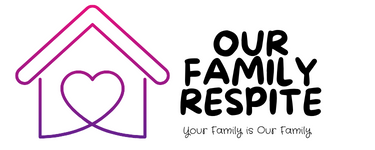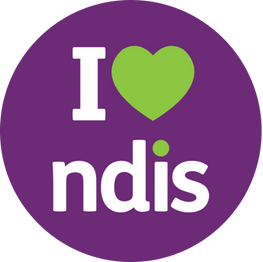Navigating the NDIS can be overwhelming, and having a good Support Coordinator can make all the difference. But what happens when you’re not getting the support you expected? How do you know if your Support Coordinator is doing their job properly—or if it’s time to find someone better?
Many NDIS participants and families assume that because they have a Support Coordinator, things will automatically run smoothly. Unfortunately, not all Support Coordinators are proactive, helpful, or even doing the job they’re supposed to do. Here’s how to tell if yours is actually working in your best interest.
What Is a Support Coordinator Supposed to Do?
A Support Coordinator’s job is to help you make the most of your NDIS plan by:
✅ Helping you understand your plan – Explaining your funding, how to use it, and what services you can access.
✅ Finding and connecting you with providers – Ensuring you have the right support workers, therapists, and services to meet your needs.
✅ Making sure your supports are working well together – Coordinating different providers so your support is seamless.
✅ Advocating for you – If your funding isn’t enough, they should help gather evidence to request more.
✅ Preparing for plan reviews – Ensuring you have the right documentation and reports to justify ongoing or increased funding.
✅ Helping you access respite care – If you or your family need respite, they should help secure funding and find a suitable provider.
✅ Supporting you in emergencies – If something goes wrong, your Support Coordinator should step in and help solve the problem.
In short: A good Support Coordinator should make your life easier, not harder. If you’re feeling more stressed, confused, or unsupported, something isn’t right.
Signs Your Support Coordinator Isn’t Doing Their Job
🚩 They don’t explain your NDIS plan properly – If you have no idea what your funding covers, they aren’t guiding you well.
🚩 They only contact you before a plan review – A good Support Coordinator checks in regularly, not just when it’s time to renew funding.
🚩 They don’t listen to what you want – If they ignore your goals or push services you don’t need, that’s a red flag.
🚩 They make you do all the work – Their job is to find and connect you with services, not just tell you to “Google it.”
🚩 They don’t help when things go wrong – If you’re struggling with a provider or need urgent changes, they should step in—not leave you to figure it out.
🚩 They don’t fight for more funding when you need it – A great Support Coordinator advocates for you, gathering evidence and writing reports to help increase your funding.
🚩 You never hear from them – If they’re impossible to reach or take forever to reply, they’re not providing the support you deserve.
How to Tell If You Have a Good Support Coordinator
✅ They make you feel supported – You should feel like someone is in your corner, helping you get what you need.
✅ They understand your goals – They take time to learn what matters to you and ensure your supports align with that.
✅ They respond quickly – You don’t have to chase them for answers.
✅ They take work off your plate – Instead of making you do all the legwork, they handle provider research, referrals, and service agreements.
✅ They follow up – They check in to see how things are going, not just disappear after your first meeting.
The Role of Your Support Coordinator in Accessing Respite
One of the biggest things a good Support Coordinator should do is help you access respite care if you need it. If you or your family are feeling burnt out, your Support Coordinator should:
✔ Check your NDIS funding to ensure you have funding for respite in your plan.
✔ Advocate for more respite funding if needed by gathering reports from providers and health professionals.
✔ Help you find a quality respite provider that fits your needs.
✔ Coordinate everything so that arranging respite isn’t stressful for you.
If your Support Coordinator hasn’t mentioned respite care—or tells you it’s “not possible” without even checking your plan—you might need to push for better support.
If you’re looking for respite for you or your loved one, contact us to have a chat today! We can even provide supporting documents to help you get respite added to your plan!
What to Do If Your Support Coordinator Isn’t Right for You
If you’re unhappy with your Support Coordinator, you don’t have to stay stuck with them. Here’s what you can do:
1️⃣ Talk to them first – If they don’t know you’re unhappy, they can’t improve. Be clear about what you need.
2️⃣ Look for a new provider – You can change Support Coordinators anytime! Search for one with better communication, experience, and reviews.
3️⃣ Use your NDIS funding wisely – Support Coordination is funded to help YOU. If your current provider isn’t doing that, don’t waste your funding on them.
4️⃣ Ask for recommendations – Other NDIS participants or families may know of better Support Coordinators.
Final Thoughts: You Deserve the Right Support
Your NDIS plan is meant to help you live a better life—and your Support Coordinator plays a huge role in making that happen. If yours isn’t doing their job properly, it’s time to take action. A good Support Coordinator works for YOU, not the other way around.
If you’re feeling unsupported, unheard, or just plain frustrated, don’t be afraid to find someone better. The right Support Coordinator can make all the difference in getting the services, funding, and respite you need.
How can we help?
If your Support Coordinator hasn’t mentioned respite care—or tells you it’s “not possible” without even checking your plan—you might need to push for better support.
If you’re looking for respite for you or your loved one, contact us to have a chat today! We can even provide supporting documents to help you get respite added to your plan!

